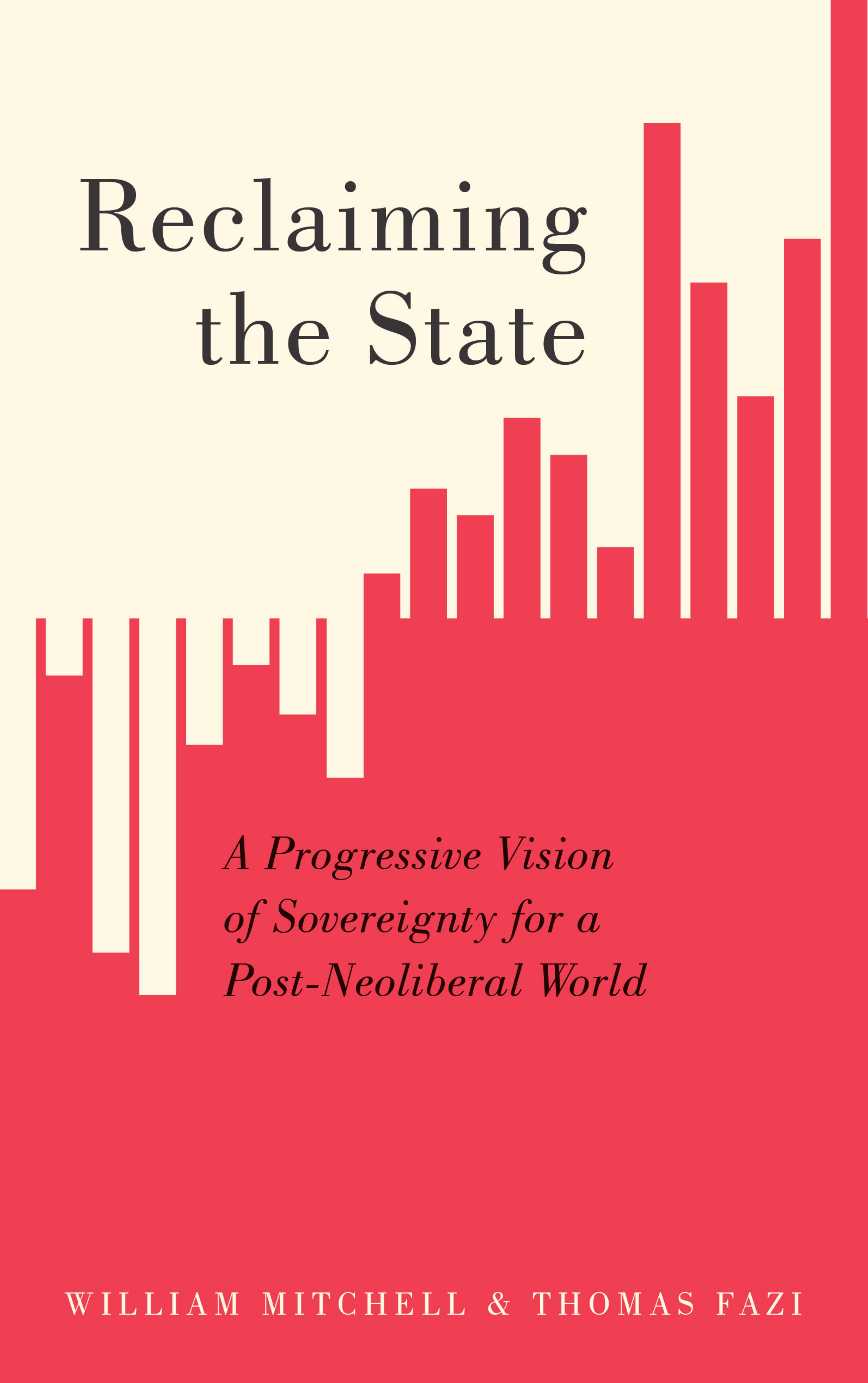Reclaiming the State by William Mitchell Thomas Fazi

Author:William Mitchell,Thomas Fazi
Language: eng
Format: epub, pdf
ISBN: 9781786801494
Publisher: Book Network Int'l Limited trading as NBN International (NBNi)
The structural, ‘organic’ decline of Western economies (and in particular of the US as the global hegemonic power), in other words, is not simply a collateral effect of neoliberal financialisation; it is also directly related to China’s ascent to superpower status in recent years, itself part of a wider global powershift to the East. Strikingly, China and other emerging market economies accounted for more than 80 per cent of world GDP growth over the 2008–16 period.9 China has undertaken massive trade and investment deals with other Asian countries as well as with Africa and Latin America, and is on course to displace the US and other Western countries as those regions’ main trading partner. This partly explains the huge rise of protectionist measures directed at China in recent years (again, well before Trump’s election) by the EU, US and Japan. Some authors have also emphasised that the slowdown of global economic growth might be resulting from ecological factors – that is, constraints on the supply of energy and other biophysical resources that feed into the economic process and impact its functioning.10
In this sense, Trump’s victory, Brexit and the rise of populist parties ‘are but epiphenomena of momentous shifts in global political economy and international geo-political alignments that have been taking place since the 1970s’.11 Namely: (i) the crisis of the neoliberal economic model and ideology, which is no longer able to overcome its intrinsic stagnationary and polarising tendencies and to generate societal consensus or hegemony (in material or ideological terms), and is increasingly unable to deliver benefits even to its core supporters; (ii) the crisis of globalisation, which is no longer able to offer an escape from the inexorable pressures of overaccumulation and overproduction, largely due to increased competition from countries like China (which in turn are facing crises of overaccumulation of their own); (iii) the ecological crisis; and (iv) the crisis of US hegemony, which is no longer able unilaterally to enforce the global neoliberal order, neither through soft power (that is, through pro-Western multilateral institutions such as the IMF and World Bank), as it did during the 1990s, nor through hard power (that is, through brute military force), as it did throughout the early 2000s, as demonstrated by the West’s fumbling in Syria. Trump’s tough stance on China and other surplus countries (such as Germany) accused of currency manipulation, and his plans for ‘renationalising’ US economic policy, should thus be understood in the context of an unfolding collapse of the neoliberal order.
What we are witnessing is not the end of globalisation – which will continue, although it will likely be characterised by increased tensions between the various fractions of international capital, particularly between the US, Germany, Japan and China, and by a combination of protectionism and internationalisation – but rather the birth of a post-neoliberal order. From a historical perspective, there was no reason to believe that neoliberalism would go on indefinitely. As we saw in Chapter 2, each distinctive stage of capitalist development is based on a
Download
Reclaiming the State by William Mitchell Thomas Fazi.pdf
This site does not store any files on its server. We only index and link to content provided by other sites. Please contact the content providers to delete copyright contents if any and email us, we'll remove relevant links or contents immediately.
| Elections & Political Process | Ideologies & Doctrines |
| International & World Politics | Political Science |
| Public Affairs & Policy | Specific Topics |
| United States |
The Secret History by Donna Tartt(16606)
The Social Justice Warrior Handbook by Lisa De Pasquale(11485)
Thirteen Reasons Why by Jay Asher(7780)
This Is How You Lose Her by Junot Diaz(5753)
Weapons of Math Destruction by Cathy O'Neil(5029)
Zero to One by Peter Thiel(4816)
The Myth of the Strong Leader by Archie Brown(4785)
Promise Me, Dad by Joe Biden(4440)
Stone's Rules by Roger Stone(4412)
Beartown by Fredrik Backman(4403)
How Democracies Die by Steven Levitsky & Daniel Ziblatt(4392)
The Fire Next Time by James Baldwin(4336)
100 Deadly Skills by Clint Emerson(4070)
A Higher Loyalty: Truth, Lies, and Leadership by James Comey(4024)
Rise and Kill First by Ronen Bergman(4008)
The David Icke Guide to the Global Conspiracy (and how to end it) by David Icke(3875)
The Farm by Tom Rob Smith(3869)
Secrecy World by Jake Bernstein(3773)
The Doomsday Machine by Daniel Ellsberg(3725)
